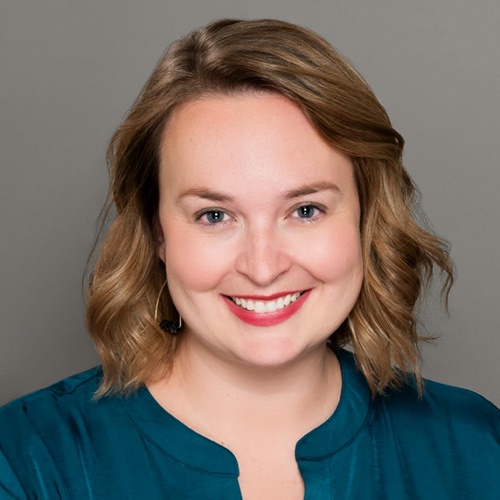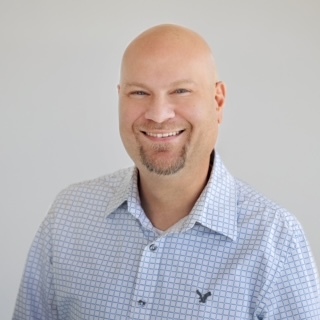
Sara Bader
Director of Training Programs
“I would encourage people that if they feel driven to the work of reducing inequities that there is a role for them in this work.”
The path Sara Bader took to working in health equity was far from straightforward. Growing up, she felt a longing for the kind of community interaction seen in other parts of the world. A trip to Europe at a young age—where she witnessed firsthand the strong community vibe of England—solidified her desire to be in a place where the community is a vital piece of the social fabric. She moved to Europe for graduate school and dedicated herself to a career in urban planning, which she hoped to use to improve the community she was living in. Immigration changes signaling the earliest inklings of Brexit forced an earlier-than-planned return to the States, where she fortuitously found her way to health care, where she worked in the quality improvement & patient safety space. It was there that she realized that not only could her desire to improve the design of communities also improve the health of those communities, but that this was where her long-term professional passion lied.
When did you first recognize the reality of health equity?
Frankly, not until my professional life. I’m a white woman. I grew up in a middle class, predominantly white community and visible inequity really didn’t exist in my life as a child. But as I’ve ventured through my professional career, especially as I switched into healthcare, I think the stories I heard about what patients were experiencing, looking closely at data to identify opportunities for clinical improvements, and then actually getting to know people who have experienced racism in their day-to-day lives have opened my eyes to the reality of inequities in our society. I think it’s been very much a learning path for me. So even though I can’t personally identify, I know that I can support and align and try to be an ally.
So how did you decide that you wanted to make health equity your work?
It really started from a community improvement lens, which is why I went into urban planning. From there, I realized that my own personal desire to live somewhere “better” evolved into an understanding that not everybody has the same access and opportunity in the communities they live in due to inequities and structural factors. I realized I had a unique set of skills, from my urban planning background to my work in health care quality improvement, that could allow me to focus in on this space in my career.
What life experiences shape your understanding of health equity?
I think it’s important to be honest, right. My personal life has not been touched by inequity and that’s a very privileged position to be in. And so I think acknowledging that is important.
I also didn’t realize until much, much later that the biggest pivot I’ve had to deal with in my life—getting basically kicked out of England—was the result of structural racism that exists in the UK and its influence on immigration policy—societal level stuff. There was absolutely nothing I felt like I could do about something that was influencing the trajectory of my life so profoundly. That’s a very scary realization.
Is there any particular moment or anything specific that happened, that opened your eyes a little bit?
There’s not a specific moment where I can say oh, I experienced this or I had this conversation, but I think seeing society’s reaction to George Floyd’s murder was a real flip-the-switch sort of moment for me. I lived in Minneapolis for a time, was working for a large health system that was headquartered a mile from where that happened, and I realized I didn’t know that community. I didn’t want to find myself in a state of unintentional complaceny again.
What advice would you offer others striving to advance health equity?
I think what I’ve learned along the way is that my background has a place. I struggled for a while with being an urban planner in health care, especially clinically-focused health care—where do I fit? And I was lucky enough to find my niche. So, I would encourage people that if they feel driven to the work of reducing inequities that there is a role for them in this work. And it’s actually through diversity of experience and background and people that this work gets done. And so that’s the advice that I would give is that your background is only a value-add, and so find your own niche, because it’s there.
Describe a problem that people involved in health care face (be they practitioners or patients) that you would like to solve.
I think that there is a limited scope in terms of what health care thinks its role is. Health care, understandably in a lot of ways, often has a very medical mindset—we treat what’s in front of us. And upstream thinking is not just what’s in front of us, but what’s happening around us. So there’s a shift required in thinking about the role, and I think what we do a lot in our work is emphasize not that health care is solely responsible for that, but that health care does have a role to play.
Especially with the power of the healthcare institution. Usually hospitals are big employers, they have money, they’re really influential in the towns and cities within which they exist. And so how can they either partner with organizations to address those things that are around them, or come in support of organizations doing this work?
So, it doesn’t need to be healthcare in the leadership sort of role all the time. And I think that that is a frame shift for a lot of people and a big “aha” moment when we work with teams—of thinking that it’s not just you, you’re not doing this alone. But that there’s a whole suite of organizations whose day-to-day is making those upstream and structural changes in your community and that you can align with and partner with and support them and have that be your role.
What do you do at HealthBegins?
At HealthBegins I lead up all of our training work, which to date has mostly been learning collaborative models, but we’re expanding how we think about training in ways that I’m excited about. Making our services more accessible to more people and organizations at different levels and with different time commitments. So for example, learning sprints are something new that we’re developing, which is a shorter, more focused kind of iteration of a learning collaborative. Whatever the service is, I’m lucky that I get to work with a lot of teams from across the country, focused on that question of “how do we do this?” and supporting the many different answers to that.
What do you find challenging about your work?
I think it’s always evolving. So there’s always a need to adapt. It’s a challenge, but it’s not a bad challenge. I think that the field is so quickly changing there’s new information, there’s things happening in society. I think it can be really heavy to do this work, which while difficult, is also motivating.
What do you wish everyone else understood about health equity?
Just that it’s not easy, but it can be done. That you don’t need to have all the answers to start the work. That kind of testing, learning, being humble, and how you approach the work and you’ll learn a lot and make it happen with time and with trying and in partnership.
Tell us a little about the people who shaped your values.
I think my family for sure, my mom made it to the top of her field and was a really successful, professional woman who worked really hard. She actually worked in healthcare and did a lot of really great work for hospitals and transforming how hospitals function. But she always had time for her family. I never felt like my mom was working all the time. I never felt like my mom wasn’t there for me. And so I want the same thing for my family. I want to be able to succeed professionally, do really good work, but I don’t want to do that at the sacrifice of my daughter, my husband, my dogs.
And then I’ve had a couple of really great mentors who have supported me professionally and helped me to see that there’s a space for people who are not from a “typical” kind of academic or professional background who can come into healthcare and actually make positive change.
What brings you meaning in your life outside of your work?
My daughters, my family. I really love being a mom. It’s the most important thing in my life. Watching my daughter grow up, become her own little person. And then I have other random hobbies, I read a lot. And then when the weather is nice lots of hiking. I feel fortunate to be able to easily access nature out my back door.
Looking 10 years into the future, describe what you hope to have achieved and how you hope the world will be different.
I hope for the work that we do to be the norm. I feel like we still kind of work with the vanguards, and in some ways I see Upstream Quality Improvement following a similar path of clinical quality improvement. And we’ve seen that shift happen in healthcare, with things that at one point were an accepted part of the way in which the system works are not anymore. And so I’m hopeful that that will happen with health equity as well.
Vsem Yenovkian is the Communications Manager at HealthBegins.
Featured Content
Staff Spotlight: Erica Jones, Following Her Path and Passion to Help People
“I wish people would try to advocate for themselves more, because I feel like there's this power struggle and people don't feel like they can.”
Staff Spotlight: Kyron Pierce, The Eagle Scout with a Passion For Helping People Lead Healthy Lives
“[Health equity] is very hard work and it might be some years for us to see the fruits of our labor, but it'll be worth it when you do produce it.”
Staff Spotlight: Alejandra Cabrera, Perfectly Imperfect Artist and Health Equity Advocate
When I work with people and communities, I always think back to this sense of not belonging and it drives me to continue to do the heart-work we need to do to advance health equity.


